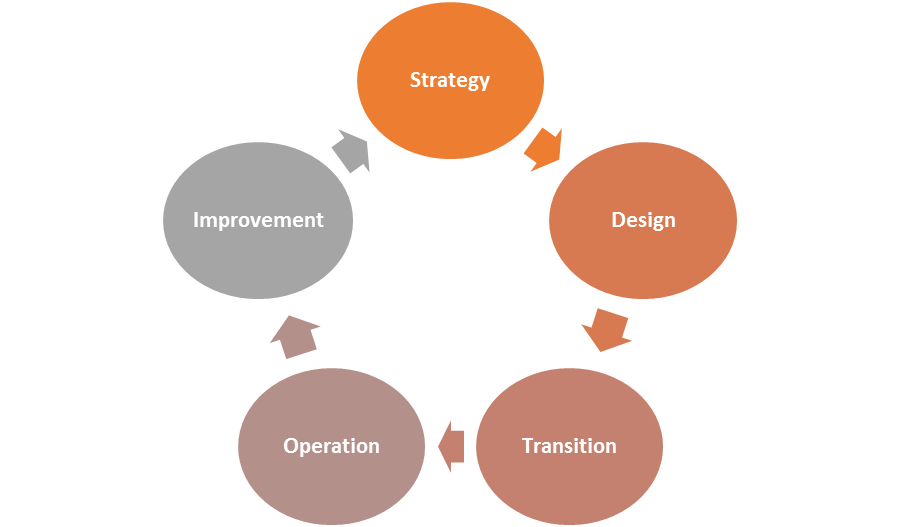Course Content
Introduction to Service Management
- Service Management lifecycle
- Principles of IT Service Management
- Define Service and its objectives
- Service Management
- Benefits of Service Management in organisation
- Define Process and its characteristics
- RACI Model
- Types of service providers
- Process and its characteristics
- Contracts and suppliers
Service Management lifecycle
- Service life cycle
- Scope and Objectives
- Challenges and Benefits of IT Service Management
- Elements of life cycle
- Link between different life cycle stages
- Relation between Governance and ITSM
Service Strategy
- Define Service Strategy
- Scope and Objective
- Service Strategy Process
- Type of Services involved in the organisation
Service Strategy Concepts
- Service Utility and Warranty
- Service assets
- Value creation
- Factors influencing customer perception of value
- Service Packages
- Business outcomes
- Service Packages
- Structure of Business case and its uses
- Uses and Structure and of Business case
Service Strategy Process
- Define Process
- Demand Management
- Service Demand
- PBA and UP
- Service Portfolio components
- Service Portfolio Management
- Financial Management
- Managing business relations
Service Design
- Define Service Design
- Roles in Service Design
- Key concepts and terminologies
- Service Design process
- Service Catalogue Management
- Service Level Management
- Capacity Management
Service Transition
- Define Service Transition
- Configuration item
- Configuration Management System
Service Transition Process
- Overview and Objective
- Transition, Planning and Support
- Change Management and Change Model
Service Operations
- Overview
- Events
- Alerts and Incidents
- Service Operation Processes
- Event Management
- Event Management Process
- Event Logging and Filtering
- Manage Exceptional Events
- Incident Management
- Process Interfaces
- Problem Management

 ENQUIRE
ENQUIRE
 REQUEST CALLBACK
REQUEST CALLBACK
 GET A FREE QUOTE
GET A FREE QUOTE


 Introduction
Introduction Course Details
Course Details Course Content
Course Content






 London
London